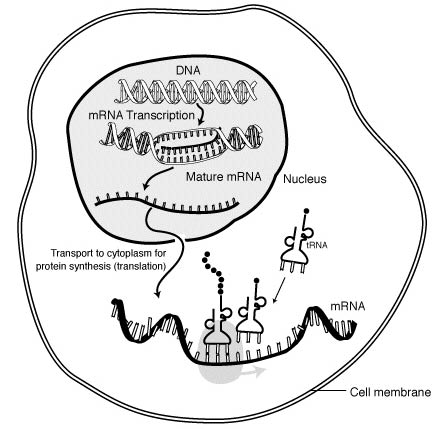Genetic modification, even small, has great consequences
A study by researchers at McGill University found that small differences in DNA sequences in individuals could cause a major contrast in gene synthesis of genes, leading to a series of Differences in physical characteristics among individuals.
Research has uncovered part of the mystery of why relatively small numbers of DNA's protein sequences produce a huge diversity of individual phenotypic differences. Previously, scientists have demonstrated the differences between individuals based on relatively small and simple variants on DNA sequences (nucleotide polymorphisms 1) that do not carry a large genetic effect. both.
Dr. Jacek Majewski of McGill University explains: 'There are many nucleotide polymorphisms. 1. If you put them all together, you will have two people carrying more than 1 million different points on the genome. Suppose you and I have more than 1 million differences like that, but still it's difficult to explain the phenotypic differences in our appearance, the way we develop and behave based solely on a limited number of differences in the gene coding for such proteins ".
Majewski and his colleagues have demonstrated that the production of natural mRNA through the coupling process is controlled by nucleotide polymorphism 1 . The nucleotide 1 polymorphism in each person leads to changes in the coupling process, causing a change in the form of the synthesized protein. The consequence of this phenomenon is the generation of genetic diseases such as cystic fibrosis or type 1 diabetes.

Interaction of information RNA (mARN) in cells.Majewski and his colleagues demonstrated the production of natural mARN through the coupling process controlled by 1 nucleotide polymorphism (SNPs).- (Photo: NHGRI / Talking Glossary to Genetics).
The study was carried out by Dr. Jacek Majewski of McGill University, a department of Genetics with McGill University and the Quebec Center for Gene transformation. The study is part of the Gene Genome Project and is funded by the Quebec Genome and Genome Agency. The study was published on January 13, 2008 in Nature Genetics.
Dr. Tom Hudson was the first to initiate the study, he was the former director of McGill University and the Quebec Center for Gene transformation. The HapMap project has collected data for this study. This is a global genetic map of the human genome that Dr. Hudson and his colleagues have laid the foundation for.
- Incest has happened 'like a meal' in ancient times?
- Believe it: Science creates bees from
- The monkey has a mother and a father
- Controversy about technology to create perfect babies
- For the first time in embryonic genetic modification history
- 5 Russian couples have agreed to use genetic modification so their children are not deaf?
- Detection of genetic modification factors for breast cancer
- Scientists have figured out how to change the genome in humans
- The world's first genetically modified twin girls, able to fight HIV infection
- Use genetic modification tools to create super-muscular dogs
- Swedish scientists controversy when editing genes in human embryos
- Genetically modified order helps detect cancer early
 Why do potatoes have eyes?
Why do potatoes have eyes? 'Tragedy' the world's largest carnivorous life: Death becomes ... public toilet
'Tragedy' the world's largest carnivorous life: Death becomes ... public toilet Tomatoes were once considered 'poisonous' for 200 years
Tomatoes were once considered 'poisonous' for 200 years Detecting microscopic parasites on human face
Detecting microscopic parasites on human face